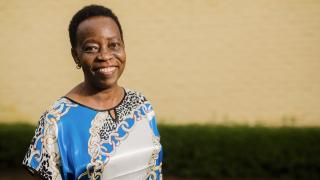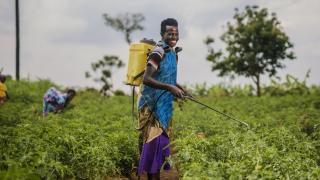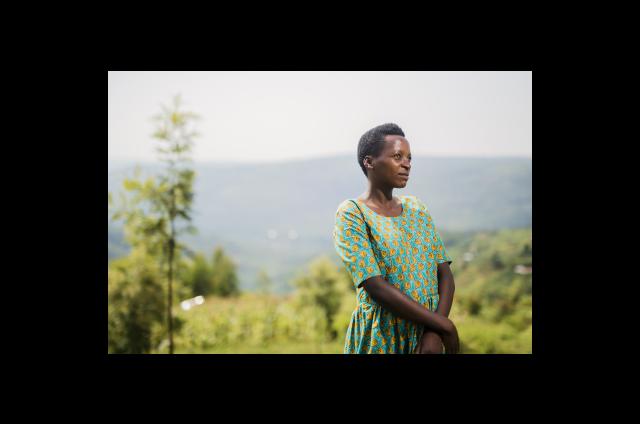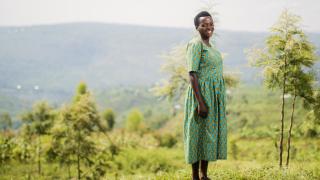Voices from the Field: Rwanda under Lockdown
As the Coronavirus pandemic spreads across the world, we are hearing from our global colleagues about how the crisis is affecting them and the women they serve.
Can you tell us a bit about yourself and your role at Women for Women International?
My name is Clemence Bideri, I am the Economic Empowerment Manager at Women for Women International in Rwanda. My day to day job involves working with marginalised women – most of whom have not been to school – to improve their financial independence and become successful entrepreneurs.

"Group leaders have their own mobile phones, unlike most of our programme participants - so we asked them to report to us regularly on behalf of their group and community. We share these updates amongst our team so we can decide how best to respond and provide support."
"Ordinary Rwandans cannot afford the disposable face masks being sold in pharmacies, so if we can provide fabric ones that can be rewashed and reused, this is one way our women can support the wider country."
Yes, definitely. The women who have gone through our programme have been trained in how to work in networks and support each other when they have problems, which is crucial at this time.
Last year we began establishing graduate networks across the seven districts where we operate, connecting women who have been through our programme who can act as advocates in their communities and share knowledge and ideas. So far about 40,000 graduates are now part of self-sufficient networks, operating independently of Women for Women International, and they are reporting back to us and giving us recommendations.
For example, in Nyaruguru, many of our graduates are involved in agribusiness. The government has said that this sector is an essential service, and since we cannot stop the rain from falling, Rwandans must continue with their agricultural activities, whilst also being very careful to practice social distancing while working in fields and taking other safety and hygiene precautions. Our graduate networks are telling us that they have organised themselves into smaller groups who take turns to farm, so 10 women will go on Monday and maintain a safe distance from each other, then another 10 on Tuesday, and so on. Our programme gives them the connections, confidence and skills to analyse the issues that they are facing and find solutions together.

Our graduates have organised themselves into smaller groups who take turns to farm, keeping a safe distance.
We are also talking to the men we work with through our Men’s Engagement Programme, who are helping us a lot during this period, because they are able to challenge harmful attitudes that cause violence. For example, if a woman cannot go out to work in her cooperative business, so she is unable to earn money for the household, it doesn’t mean she is useless. If the husband has been laid off from his manual work and loses his income, it doesn’t mean he is less of a man. These lessons about gender roles and relationships that they have learned in our programmes, are really strengthening men and women in their daily lives right now.
Continue reading
Adapting and innovating to address the global health crisis.
Hope Beyond the Headlines
subtitle: BEYOND THE HEADLINES OF THE CORONAVIRUS PANDEMIC
To instil a sense of hope during the Coronavirus pandemic, we are collating this hub of inspiring stories from members of our global sisterhood.
The impact of #MessageToMySister
subtitle:
These are the responses from some of the women who received #MessageToMySister postcards. See the impact of your words.



